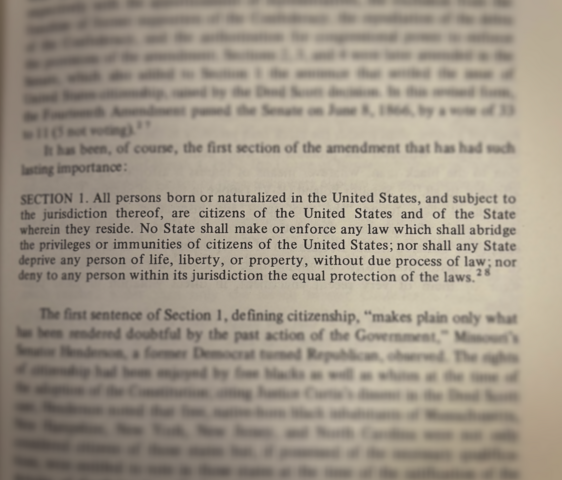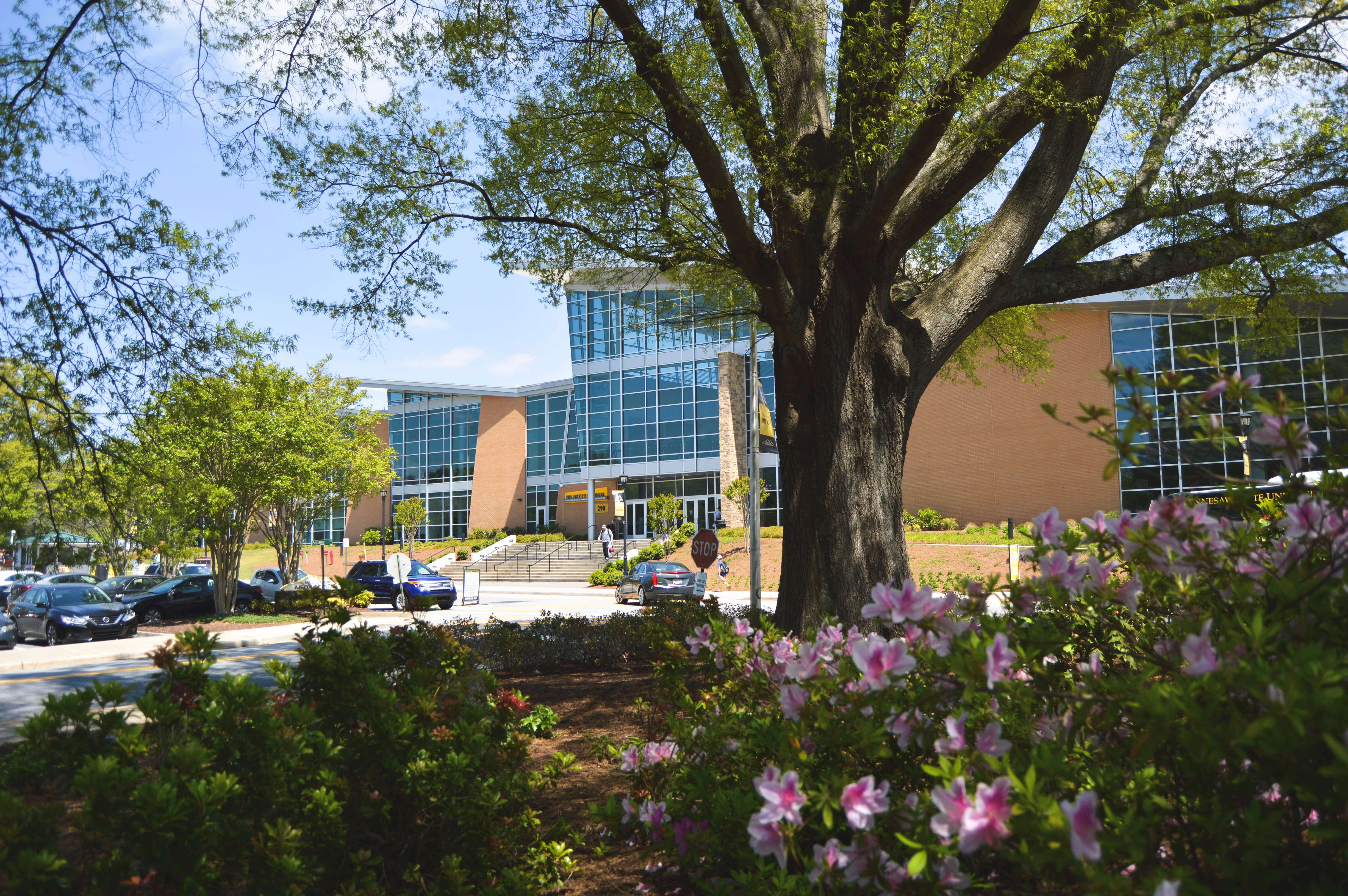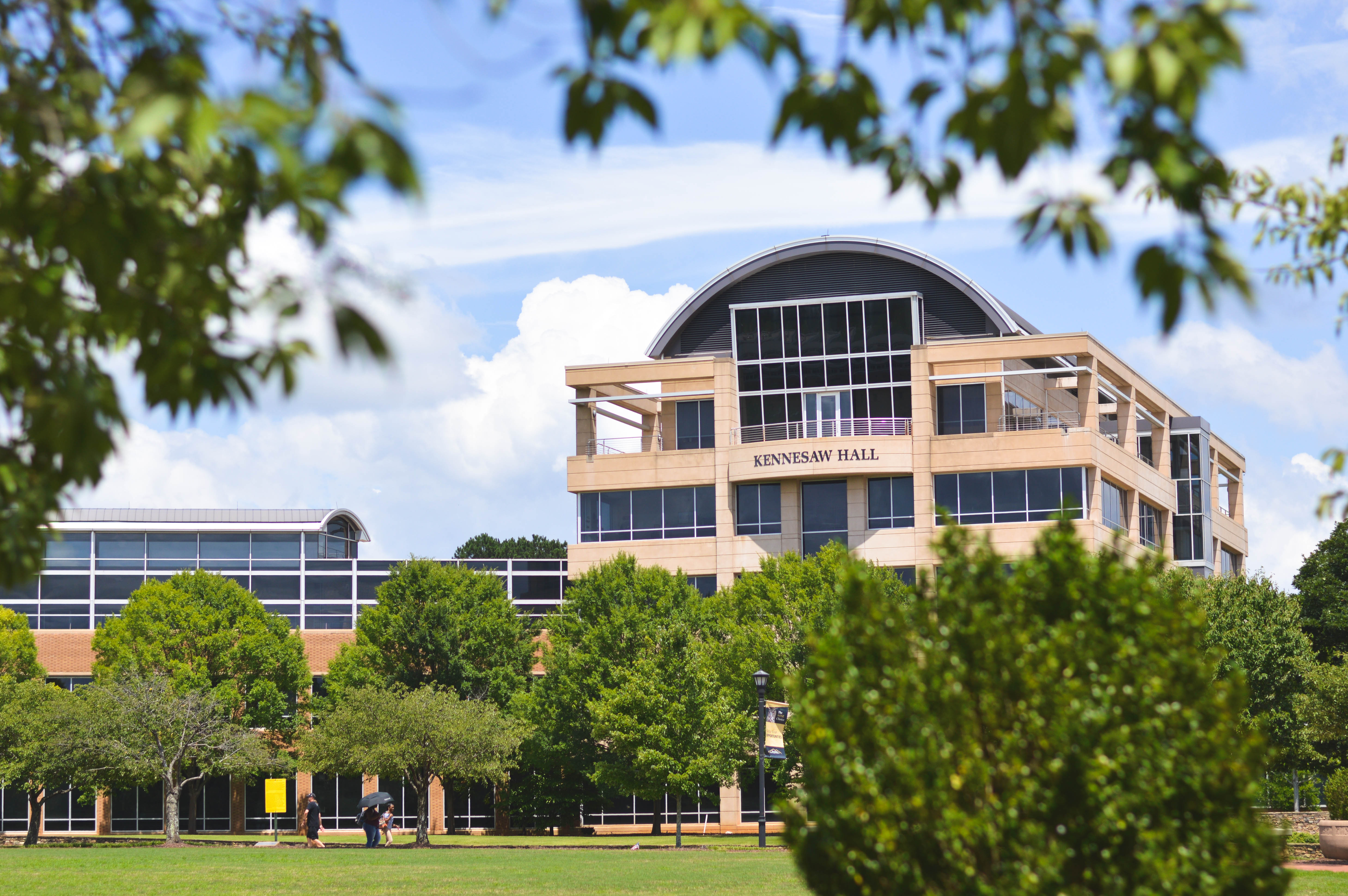KSU Students reflect on birthright citizenship and what an executive order ending it would mean for the country.
Donald Trump has officially begun his second term as United States President, and within hours of his swearing in, he began signing a multitude of executive orders. One in particular, which attempts to end birthright citizenship, has sparked debate over what it means to be born within America. By overturning this precedent, Trump would be challenging 125 years of court cases and laws that have been integral to America’s foundation.
Over 20 states have already sued the Trump administration over this decision. U.S. District Judge John Coughenou blocked this executive order, calling it “blatantly unconstitutional.”
In his executive order, President Trump mentions the 14th amendment and subsequent repudiation of the Dred Scott v. Sandford court case. The order, though, does not mention another landmark court case which further established birthright citizenship– United States v. Wong Kim Ark.
This court case was challenged the interpretation of the 14th amendment, just like President Trump is today. Wong Kim Ark was born in America to two Chinese Immigrants, neither of whom were citizens. The case sided with Wong Kim Ark, confirming that children born in the United States were citizens, even if their parents weren’t.
Though most legal scholars agree that Trump cannot end Birthright citizenship with an executive order, citizens around the United States worry about potential repercussions this action would have. According to Pew Research, in 2022 there were around 1.2 million US citizens born to unauthorized immigrant parents. Since then, the number has only grown. If this executive order takes place, federal agencies will be required to confirm the citizenship status of the parents before issuing documents like a passport.
How this would be put into place is still unclear. Experts say this could largely be left up to the states, which would let them decide how to gather data from parents when issuing birth certificates.
This process, both when issuing birth certificates and passports, would prove difficult for people with missing legal documents, complicated family dynamics or other unforeseen issues.
Three Kennesaw State University students reflected on what birthright citizenship and a potential executive order ending it could mean.
KSU student Alyssa Tinney feels the executive order is hurting America.
“I hope that they do block this executive order. It’s not constitutional and it’s just [Donald Trump] using his power to hurt American citizens. It’s not helping solve his problem of immigration. It’s only hurting American citizens who deserve to be here,” she said.
Another student, Jaylan Conwell, brought up the 14th amendment, saying he believes birthright citizenship is protected under it.
Conwell also stated “I believe that if you are born in the United States, then you are a citizen. One can argue that our ancestors weren’t natural born citizens of the United States, yet today we are citizens.”
Conwell said that, while the executive order wouldn’t affect him personally, “it’d be saddening.” He continues, saying that if birthright citizenship is taken away, he wouldn’t know what it means to be an American citizen at all.
Noah Mason, a Pre-law and legal studies major says that he feels the requirements the executive order imposes on getting a birth certificate and passport are “prejudicial and an invasion of privacy, and clearly against the constitution.”
When looking at the personal affects this order may have on individuals in America, Mason said “A lot of my friends would not be able to have children and feel safe in the US anymore.”
Since President Trump’s crackdown on immigration in the United States, his attempted step of eliminating birthright citizenship puts into question whether or not immigration is welcome in America anymore.
Tinney said, “Why do we suddenly care about immigrants coming to America even though it’s not hurting our economy and it’s not hurting our citizens? What is the purpose of taking birthright citizenship away and making it even harder for immigrants who have children in America when they haven’t done anything to hurt America?”
She explained that she feels immigration is intrinsic to America.
“I think that anyone who comes here with the hope of a better life should be able to get a better life…America is built on immigrants. There would be no America without immigrants.”
Speculation of what moving forward with this order would mean continues to occupy the minds of American’s nationwide. A potential change in the constitution, though unlikely according to most legal scholars, would have momentous effect nationwide and fundamentally change what it means to be American.



